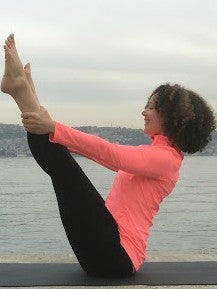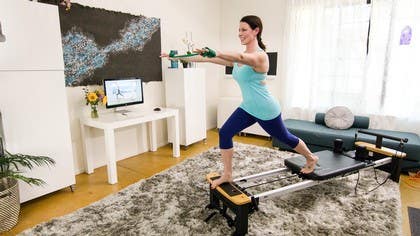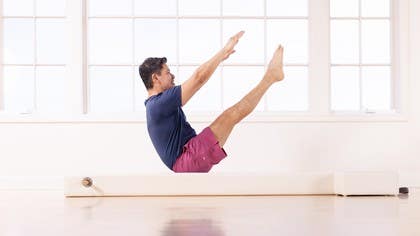
Move with an Attitude of Gratitude
Gratitude and Pilates… These words conjure up a sweet sense of peace and serenity. And yet, being aware and thankful for what and who we have in our lives can be challenging during certain times of the year or phases in our lives. The ‘Winter Blues’, a term that was created because large populations suffer from depression during the shorter and darker days of the season, is real. When it feels like our individual world or the world at large is falling apart, how do we remain grateful and motivated in our day to day activities as well as in our practice? Read on to learn some ways to practice gratitude in your life.
What Does it Mean to Have Gratitude?
We have all marveled throughout history at the countless stories of shining beacons, that in the face of adversity rise above resentment and bitterness to find gratitude. Having gratitude is not limited to challenging times or when everything is peachy. Having gratitude is being appreciative of all that you have, tangible and nontangible. Having gratitude is pausing and being aware of the details you may take for granted.
Derived from the Latin word gratia, gratitude means grace, graciousness, and gratefulness. Studies are showing that those who practice gratitude are happier and more fulfilled.
"Being grateful all the time isn’t easy. But it’s when you least feel thankful that you are most in need of what gratitude can give you: perspective. Gratitude can transform any situation. It alters your vibration, moving you from negative energy to positive. It’s the quickest, easiest most powerful way to effect change in your life — this I know for sure."
—Oprah Winfrey
Showing Your Body Gratitude
Commonly, we’re told to always keep up with our practice or some form of movement as a means of showing our body gratitude. Let’s delve into that a bit, while it’s best to always move (and quite frankly, some days only discipline will get you through), it’s important to listen and follow what your body needs. Discipline can get you to the Mat, but your body can guide you to what it needs at that particular moment. Listening to your body is showing it respect and gratitude. The practice you previously did may not be suitable for now, alternatively, if you know that pushing on is what ignites you and leaves you feeling revitalized, then honor that. Switching up your routines or trying new teachers can spark inspiration. The point is to figure out what works best for you and then be open to that changing.
Another approach to showing your body gratitude involves focusing on the positive aspects instead of any perceived negatives. Our thoughts and words matter. Kindness and positive affirmations have a profound effect on the cells of our body and improve body image. Thanking our body for its capability to move is uplifting versus focusing on what the body is struggling with.
On a lighter note, dressing the part, playing with your environment, or expanding your creativity in whatever fashion suits you can inspire gratitude in your movement practice. Changing up your environment, such as painting a wall, adding a photo, plant, favorite memento, or even rearranging items can energize you. For some, grabbing something colorful to workout in or with is energizing, creating a feeling of newness, which reminds us of our possibilities.
Mindset Shifts
It is famously quoted, “The definition of insanity is doing the same thing over and over again and expecting different results.” It's not easy to change what is inherently ingrained in us, subconsciously or not, hence why mindset shifts are important and necessary. A shift in mindset starts as noticing a thought or action and immediately altering it with the opposite. If you wake up with the mindset of not wanting to do your practice because it feels too hard, then you’re setting yourself up for more obstacles. When the thought occurs try to focus on the positives or benefits, such as feeling better, or more energized. Gratitude may sound like, “I’m so lucky that I can do my practice” or “I’m so grateful that I have the choice and capability to practice.”
Neuroscientists Dr. Andrew Newberg and Mark Robert Waldman, co-authors of Words Can Change Your Brain, have studied the effects of words citing that positive words can literally influence your genes and change your reality. This is why gratitude journals and practices have become so popular and helpful for improving lives.
Showing Gratitude Towards Others
One aspect of gratitude and improving your own well-being is showing kindness and appreciation to others. This allows the individual to see beyond their own problems and refrain from fixating on them. Plus, it feels good when you make others feel good too!
What are some ways you can express gratitude to your teachers, colleagues, workout buddies, or clients? This is where you can get creative and have fun! As long as it's sincere, the gesture goes a long way and it’s not limited to tangible gifts (although that’s nice too). A compliment, a heartfelt handwritten note, virtual parties, or customer appreciation weeks with fun games and prizes are the tip of the iceberg. If all else fails, a sincere smile and a thank you will do.
We love hearing from you, let us know how you’re moving with an attitude of gratitude below.
Comments
No comments yet. Be the first!












You need to be a subscriber to post a comment.
Please Log In or Create an Account to start your free trial.